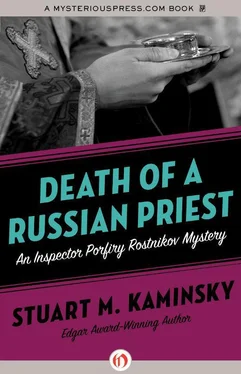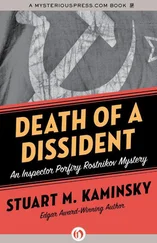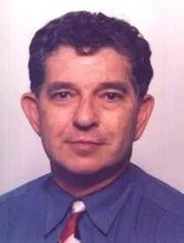Stuart Kaminsky - Death Of A Russian Priest
Здесь есть возможность читать онлайн «Stuart Kaminsky - Death Of A Russian Priest» весь текст электронной книги совершенно бесплатно (целиком полную версию без сокращений). В некоторых случаях можно слушать аудио, скачать через торрент в формате fb2 и присутствует краткое содержание. Год выпуска: 2012, Жанр: Полицейский детектив, на английском языке. Описание произведения, (предисловие) а так же отзывы посетителей доступны на портале библиотеки ЛибКат.
- Название:Death Of A Russian Priest
- Автор:
- Жанр:
- Год:2012
- ISBN:нет данных
- Рейтинг книги:3 / 5. Голосов: 1
-
Избранное:Добавить в избранное
- Отзывы:
-
Ваша оценка:
- 60
- 1
- 2
- 3
- 4
- 5
Death Of A Russian Priest: краткое содержание, описание и аннотация
Предлагаем к чтению аннотацию, описание, краткое содержание или предисловие (зависит от того, что написал сам автор книги «Death Of A Russian Priest»). Если вы не нашли необходимую информацию о книге — напишите в комментариях, мы постараемся отыскать её.
Death Of A Russian Priest — читать онлайн бесплатно полную книгу (весь текст) целиком
Ниже представлен текст книги, разбитый по страницам. Система сохранения места последней прочитанной страницы, позволяет с удобством читать онлайн бесплатно книгу «Death Of A Russian Priest», без необходимости каждый раз заново искать на чём Вы остановились. Поставьте закладку, и сможете в любой момент перейти на страницу, на которой закончили чтение.
Интервал:
Закладка:
Stuart M. Kaminsky
Death Of A Russian Priest
… in his period of piety, fasting, visiting monks, and going to church, when he was seeking help in religion to curb his passionate nature, Nikolai had not only failed to find anyone to encourage him, but everyone … had laughed at him. They teased him, called him Noah, a monk; and then, when he returned, no one came to his aid. Instead, everyone turned away from him in horror and disgust.
— LEO TOLSTOY, Anna KareninaONE
An hour after dawn on a chill December morning, the assassin stood before the white wooden church in the village of Arkush.
He was careful not to touch any of the gathering faithful who entered prepared to cross themselves, stand, bend, pray, and sing during the three-hour ceremony that would be conducted by the priest who would one day be a saint.
The assassin looked up at the domes of the church, four bulbous shapes meant to represent colorful flames reaching up toward heaven, but looking to child and nonbeliever only like pastel onions. The assassin, filled with disgust, hid behind a suffocating mask of piety. He entered the church and found a place to stand where the priest could be clearly seen.
The church was filled with men and women of all ages, families with children, not just old babushkas. They had come to hear the holy man who evoked the spirit of St. Basil and St. Philip. They had come to pass their candles forward and then be blessed by him.
Through the moving, talking congregation the assassin could see the iconostasis, the wall of holy paintings that, according to dogma, served as the door to the Lord, the Holy Mother, or the depicted saint. The assassin paid little attention to the crowd, the icons, the lighted candles. He watched the actual door in the iconostasis through which the priest would soon be coming.
In the sanctuary beyond that door, Father Vasili Merhum held out his arms in homage to the Savior so that his grandson Aleksandr could help him put on his vestments for the Eucharist. As the ecclesiastical robes slipped over his arms the priest’s heart beat madly in anticipation of what he planned to do this very afternoon.
Into his mind there came a vivid picture of a low wooden building in Moscow, the Department of External Affairs of the Russian Orthodox Church.
In a conference room in the building, where Father Merhum planned to go that afternoon, was a large painting. It was Father Merhum’s favorite painting. In the painting a large angry man in golden robes partially covered by a dark monk’s cloak looks down at a bishop, the object of his scorn. The bishop, in full white vestments, appears quite calm as he looks up at the irate giant.
The golden giant in the painting is Ivan the Terrible. The bishop is Metropolitan Philip of Moscow. Legend has it that Ivan entered the church in disguise to demand that Philip cease speaking out against the policies of the czar. The bishop refused. Ivan had him arrested and strangled in prison and Philip became a saint of the church.
Father Merhum was a large man, over six feet tall and shaped like a brown bear. He was sixty-six years old and his beard was curled and gray. His unflinching gray eyes announced that he was a priest who fully believed he had the ear of Jesus. With faith in his mission Father Merhum had stood up to commissars, the leaders of his own church, the KGB, and state leaders from Stalin to Gorbachev. And now, days after the end of the seventy-year-old failure of Soviet socialism, he stood ready to take up the demands for reform with Yeltsin himself.
Father Merhum had no illusions. He did not believe the new Sodruzhestvo Nezavisimykh Gosudarstv, the Commonwealth of Independent States, would suddenly bring freedom. He did not believe that the men against whom he had fought for more than half a century would suddenly become tolerant because they wore new hats and waved a flag of red, white, and blue instead of a red flag with a hammer and sickle. Yeltsin had come to power without a party behind him. He and the leaders of the other new nations had no choice but to rely on the old bureaucrats. The people would continue to suffer, with starvation, with the gradual realization that different is not always better, and ultimately, with attacks on their faith.
Vasili lifted his robe and held up a leg so his grandson could help him put on the stitcharion, the long, smooth undergarment. “My soul rejoices in the Lord,” the priest said softly. “He has dressed me in the garment of salvation and put upon me the vestment of joy. Like a bridegroom, He has placed the miter upon me, and like a bride, He has surrounded me with adornment.”
Across the shoulders of the priest his grandson, who stood a full half foot shorter than the old man, placed the epitrach-elion, the stole. Its dangling ends, sewn together over the chest, signified the burst of joy of the Holy Spirit.
As he donned the stole the priest said, “Praise be to God who has poured out His grace upon His priests like precious ointment upon the head; it flows down upon the beard of Aaron; it flows down upon the hem of his garment.”
Then, as the girdle was placed about his ample waist and belly, Father Merhum recited, “He has girded me with strength and made my way irreproachable.”
Then the epimakinia, the cuffs, reaching from wrist to elbow.
“Thy right arm,” he said, “was glorified in strength, O Lord; Thy right arm, O Lord, shattered the enemy.”
And then for the left arm. “Thy hands have created me and formed me; teach me, that I may know Thy commandments.”
Then he put on the chasuble, the “house,” seamless like the tunic of Jesus.
As Father Merhum said his prayer the assassin stood off to the side of the railed platform from which the priest would soon address his flock. An ancient nun, covered in black from head to foot and wearing a beehive-shaped head covering, stood head bent, praying the rosary. The assassin watched her gnarled hands that cradled a rosary of silver and green beads.
At her side a small choir of six men and women sang softly, almost to themselves. Nun and choir went silent as the ornate gold-painted door opened and Father Merhum, a giant in full vestments, stepped forth and bellowed, “Forgive me my children.”
“ Spasi gospodi. God save you. God will forgive,” echoed all but one voice in the church.
The service lasted more than three hours. Then it was time for the sermon. There was a great silence as Father Merhum turned his back to the congregation to look at the icons and gather strength from them. His broad shoulders sagged and then rose with determination.
A small child cried out for something to drink. Angry voices whispered to quiet the little boy, but the priest, who had now turned to face those before him, held up a hand and smiled.
“It is right that that thirsty child should ask for water,” he said. “The Lord did not make children with the power to dissemble. Children are taught pretense. We live in a world of pretense taught to us not only by those who once told us to worship the false God of Lenin, but by all those who would reject the true God and our Lord Jesus Christ. Give the child water.”
The ancient nun in the corner rose and the crowd parted. She moved to the child who had asked for drink and took his hand.
“Your soul,” the priest continued as the nun led the little boy to the church door, “may wear its earthly masks. Women may paint their laces.” His words echoed from the ancient stone walls. “Men may perfect their masks. But the true God can see the soul and hear its cry for water, food, meaning.”
The assassin was certain that the burning eyes of the priest met his at that moment. He forced himself to keep from blinking and turning away.
Читать дальшеИнтервал:
Закладка:
Похожие книги на «Death Of A Russian Priest»
Представляем Вашему вниманию похожие книги на «Death Of A Russian Priest» списком для выбора. Мы отобрали схожую по названию и смыслу литературу в надежде предоставить читателям больше вариантов отыскать новые, интересные, ещё непрочитанные произведения.
Обсуждение, отзывы о книге «Death Of A Russian Priest» и просто собственные мнения читателей. Оставьте ваши комментарии, напишите, что Вы думаете о произведении, его смысле или главных героях. Укажите что конкретно понравилось, а что нет, и почему Вы так считаете.












